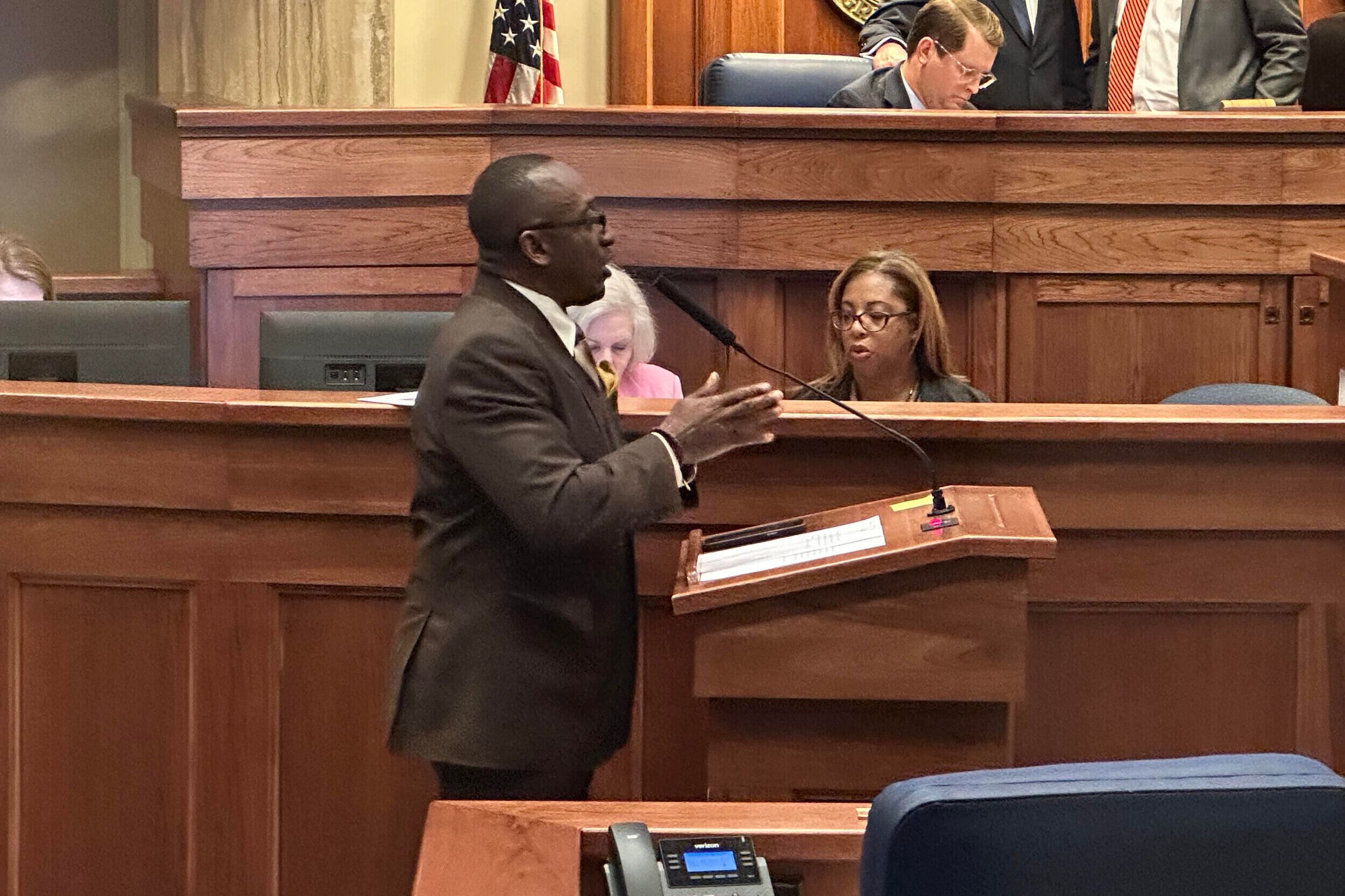MONTGOMERY — Two bills sponsored by State Sen. Chris Elliott (R-Josephine) on changing how boards for local libraries and the Alabama Department of Archives and History are appointed drew the ire of Senate Minority Leader Bobby Singleton (D-Greensboro) on Wednesday.
Both bills passed the Senate mostly with Republican support. Senate Bill 10 establishes that local library board members serve at the pleasure of their appointing authorities, like city councils or county commissions and can be removed by a two-thirds vote. Senate Bill 77 changes how board vacancies are handled on the Alabama Department of Archives and History's Board of Trustees. Instead of board vacancies being filled by the board as is the current practice, board vacancies would be filled on a rotating basis by House and Senate legislative leadership, the Lieutenant Governor, and the Governor.
Singleton said during debate in the Senate that the library board bill was more about censorship than local control concerns.
"This is really not about just local control. You're making it local control because that's where you can get around with it without dealing with the whole sensitive issue of censorship and choice. You want school choice on one hand where we're going to have a bill with $100 million to give to schools to have a choice for parents to have a choice to send their kids where they want but those same kids can't go to the library and have a choice to read what they want. That's the problem here. You want choice on one hand and you want censorship on the other. This is not Nazi Germany or apartheid South Africa. We should allow these kids to be able to read whatever those parents want them to read in the library," Singleton said.
Singleton also took members of the Alabama Public Library Service (APLS) board to task for recently voting to leave the American Library Association (ALA) after Gov. Kay Ivey sent a letter to APLS director Nancy Pack, saying she harbors serious misgivings about ALA and its influence over Alabama libraries.
"They got chicken. They should've stood up and said, 'Hey, we're about making sure that children get the best information that there is to possibly to give. It's information in a book. There's some stuff in books. I've been taught bad history all my life. I don't see books about African-Americans who invented all the inventions that they made. They give them to some white inventor which is a lie," Singleton said. "You've been teaching me bad history all my life in books. Now you want to take down books that could be telling truths. Somebody going to come with a CRT (bill) because they don't want me to talk about this up here like this up here. Telling truths. I don't mind talking the truth. I speak truth to power since you got all that power over there. I'm a speak truth to power. I want you to understand that. This is what this is really about. This is about censorship. This is not Nazi Germany where they're burning books in the streets. This is not about apartheid where they made sure that certain families didn't have certain things they could read. If they got caught with certain readings then they were put in jail. This is not slavery period to where when families were caught reading the Bible sometimes their homes were burned. Free the books. You're going around the way of censorship so then you can get in here and control and put your folks on who you want to put on the boards so they can take down the periodicals and things of that nature."
Elliott said in response that the bill is about local control of library boards.
"This bill is about local control. Every community is different. What's good in Orange Beach and what's good in Birmingham, what's good in Montgomery and what's good in Huntsville, it's just different. People are different all across the state," Elliott said. "All this does is give each individual appointing authority the ability to better control their library board. That's it. What might be good here…great. What people don't like there…fine. It's just about local control. It's not big government. It's far from it. It's putting government right where it needs to be back down there at those county commissioners and those city council people that we say, 'Hey, y'all go run this operation.'"
Both measures will now head to the House for their consideration.
"State-funded institutions should reflect the will of the people of Alabama, and the current structure of some of these boards is inadequate to respond to the voice of the people," Elliott said in a statement. "Some of these boards seem more interested in promoting their own personal social agendas instead of preserving our state's history and helping educate the kids in our communities. These bills will provide a new structure that will ensure responsiveness to Alabamians and our values. I look forward to this positive change to increase accountability for the Department of Archives & History and local library boards."
Senate Majority Leader Steve Livingston (R-Scottsboro) said in a statement, "These bills reflect our commitment to ensuring that state-funded institutions in Alabama truly serve the interests of Alabamians."
"With clearer accountability measures in place, we can ensure that taxpayer funds are used appropriately and that these institutions remain dedicated to their core missions," Livingston said.
To connect with the author of this story or to comment, email caleb.taylor@1819News.com.
Don't miss out! Subscribe to our newsletter and get our top stories every weekday morning.










